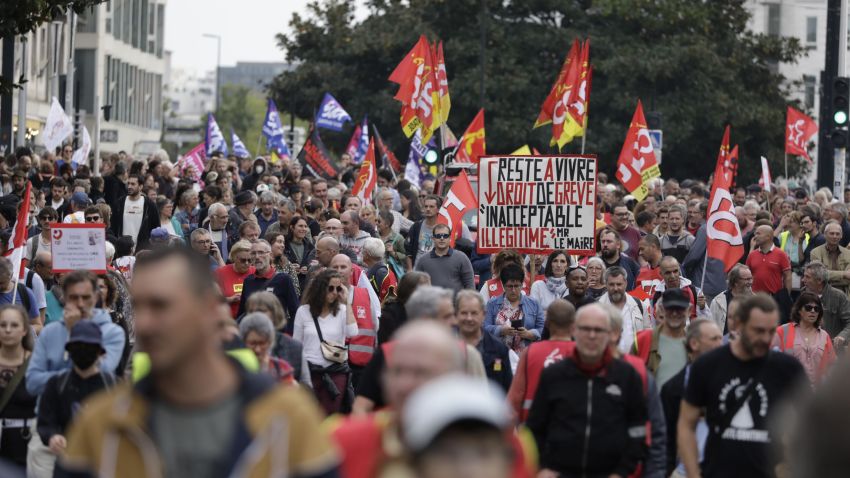The European Union’s 27 leaders gathered for a summit today in Brussels, where they are locked in a heated discussion about Europe’s energy crisis that is expected to last late into the night. But as they try to hammer out an agreement, all of them—particularly French President Emmanuel Macron—are also keeping a nervous eye on the protests and industrial strikes brewing in France, desperate to avert a winter of energy shortages, soaring living costs and broader discontent that could easily tip over into widespread civil unrest.
This week, several thousand demonstrators took to the streets of Paris, clashing with police and breaking shop windows in scenes reminiscent of the Yellow Vest protests that broke out four years ago. That movement initially gave voice to anger over a controversial fuel tax hike, but later expanded to include broader issues of economic justice and political reform. The latest strikes started at oil refineries, but have since spread to include organized labor from other industries, including transit workers. Their common theme is a demand for pay increases and other improvements to working conditions to keep up with growing inflation and the rising cost of living. Similar protests have been seen elsewhere in Europe, including Belgium and Czech Republic.
Yesterday, EU leaders met with labor union leaders in Brussels at the Tripartite Social Summit to discuss the energy crisis and the cost-of-living crisis. “We already had a drop in real wages before the war,” said Luca Visenti, general secretary of the European Trade Union Confederation, at a press conference after the summit. “Millions of people across Europe are struggling to afford food, heating and transport as a result of profiteering, particularly by energy companies, on the supply bottlenecks created by the war,” he added. Visenti also warned that the cost-of-living crisis is putting many jobs at risk as rising energy prices force industries to scale back production.

